Online persona’s. They’re everywhere – it’s a representation of what you want the online realm to perceive you as. From what we say on the BCM112 Twitter feed, or like our digital artefact of using emoji’s to convey ideas, online persona’s let people put on a mask of an online public presentation of themselves, or how they wish to be portrayed. Micro publics are a public presentation of the self online. They aren’t concerned about real or fake. It doesn’t matter if the user-generated content is authentic – it is what it is.
Micro celebrities are brilliant in creating an online persona, just take Grumpy Cat for example. Harnessing the love people have for cats along with the common hatred for most people, grumpy cat became an internet sensation.
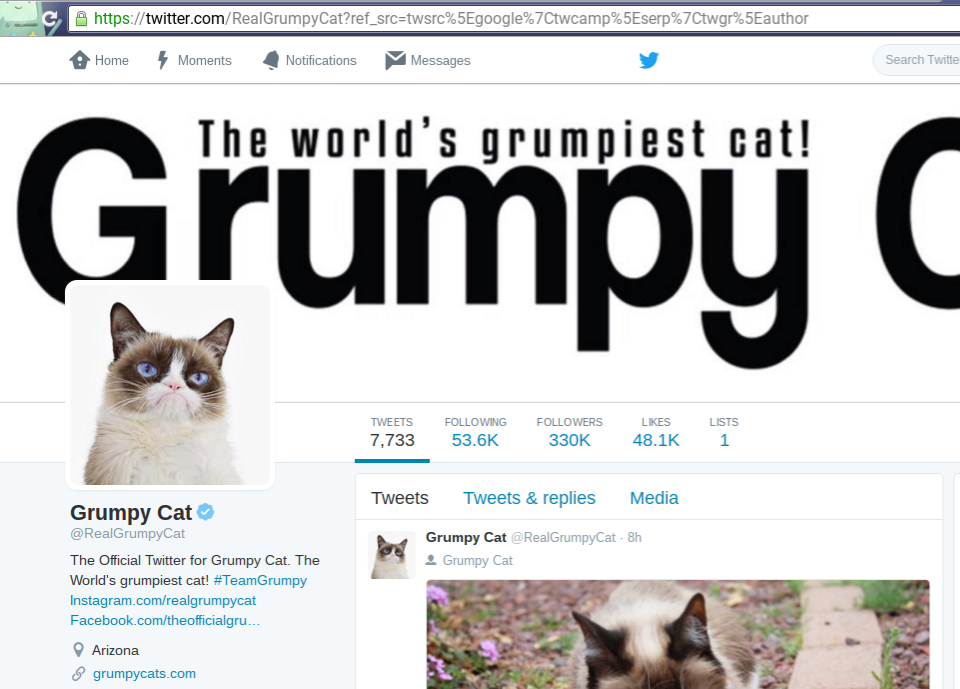
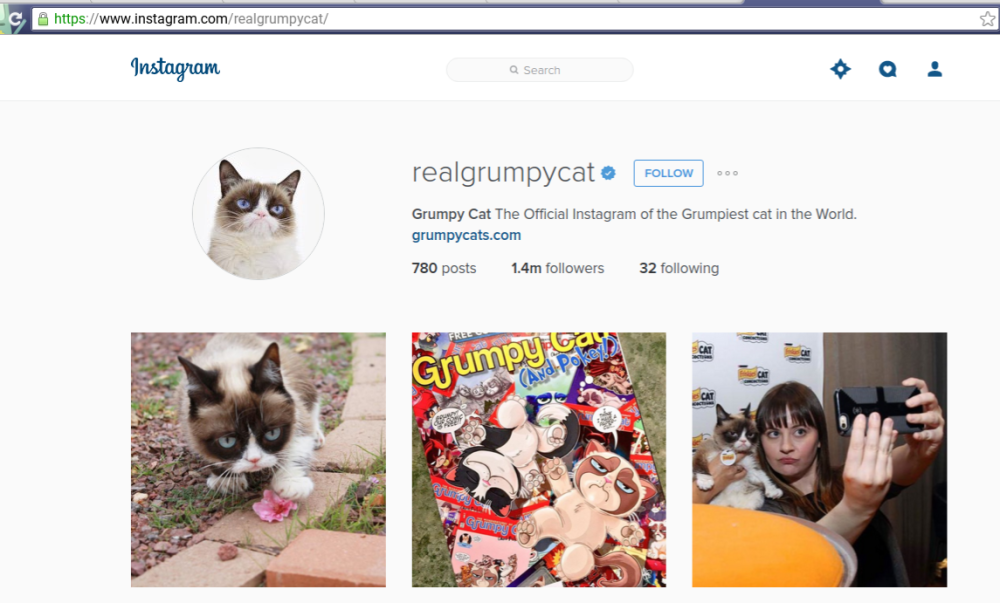
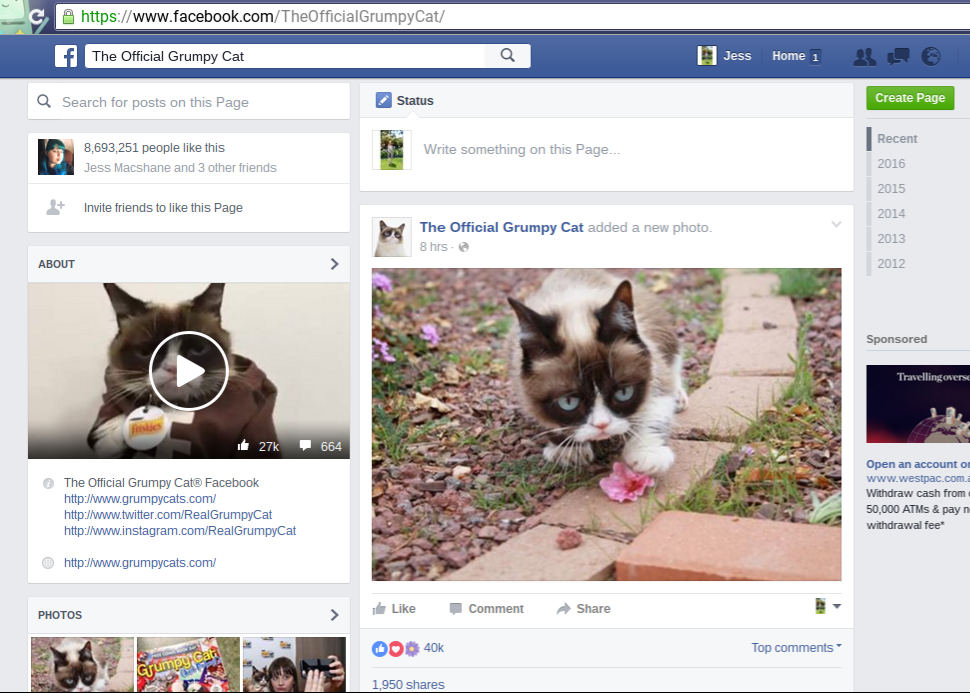
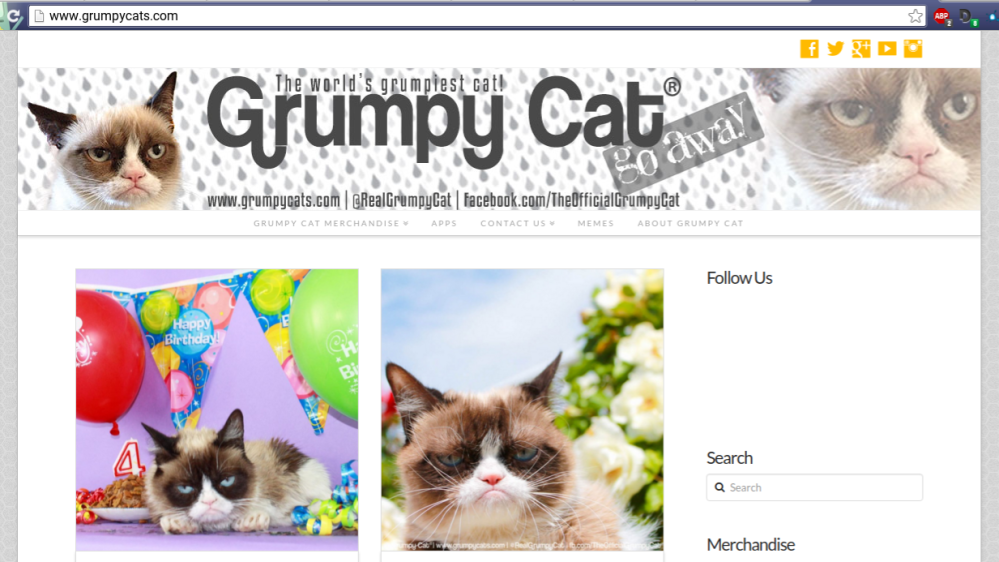
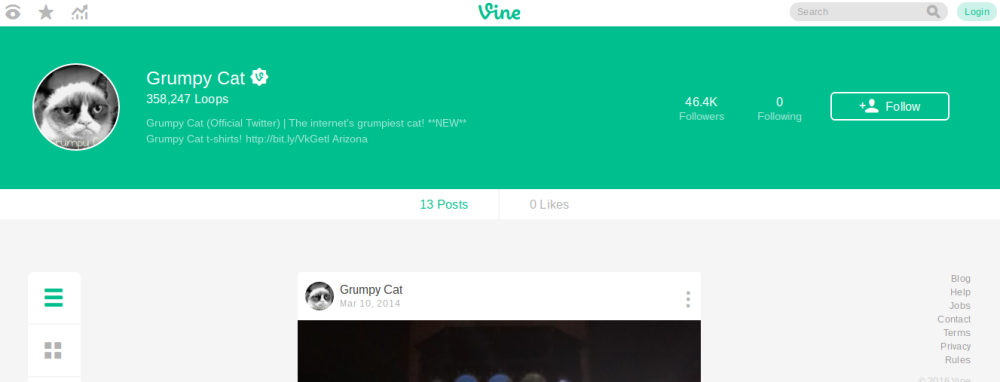
Grumpy cat’s celebrity status stems into developing a new micro public of cat memes. It expanded into merchandise, shirts, videos and remixes being made as an extension of the persona Grumpy Cat developed.
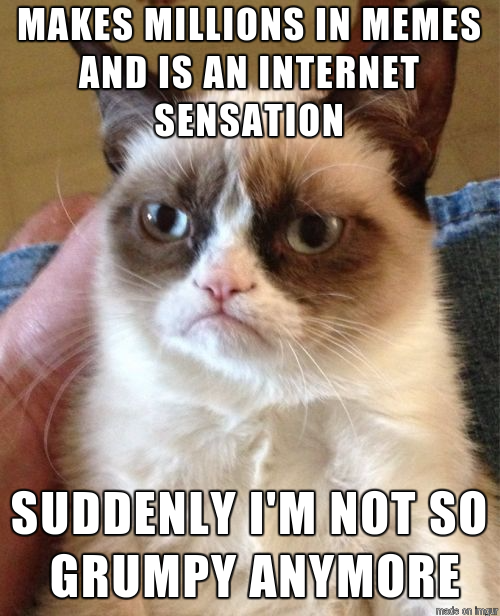
Either way, this cat is more financially stable than I am.
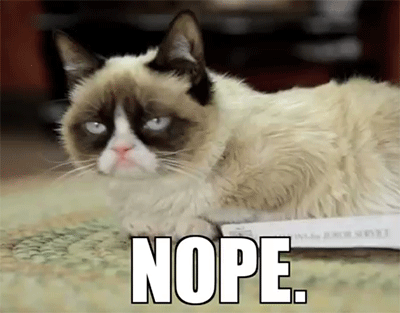

I really like that you have chosen an animal persona as your case study for the week; it highlights the fact that online presence is not limited just to people; but it can in fact extend beyond: cats, robots, heck, I gave my avatar in Pokemon an online presence for a while (it was mad fun too, she was super bitchy and just wanted to insult the other trainers she came across, even when they were stronger).
It’s interesting that you raise the lack of need for authenticity. I feel that the social media medium is entered into with the assumption that people are being authentic, that it is a reasonable representation of the person, or object; which is why when people start altering their persona online it can be met with such backlash. Does that mean that the authenticity is assumed to exist when the profile is created, and the curation of the information provided becomes the authentic self; or to put it in your words “it is what it is”? And if that is the case, does that mean publishing an aspect of yourself which doesn’t align with your curated self is unauthentic? Alec addresses some of the negative effects of only highlighting parts of yourself in an online persona in his post here: https://cyberculturesblog.wordpress.com/2016/05/06/tell-the-truth/
LikeLiked by 1 person
Not going to lie, I clicked on your post in part because of Henri the cat in your featured image – so clearly online personas have some kind of a hold on my affections. In fact, my first year at VidCon I was devastated that I missed out on the chance to meet Natalie Tran at the Grumpy Cat booth, so it’s probably a pretty strong hold at that.
I’m so happy that you latched onto this idea that a persona doesn’t have to be “authentic” to have power, or to, in a sense, be real. I’ve been working on a project for another class based around the idea that reality is simply what we experience; by extension a existential French cat or a cat who is perpetually angry at the world are just as real as anything we encounter elsewhere, even if it is a manufactured persona. Grumpy Cat was a perfect choice to exemplify online Personae! Neat job!
LikeLiked by 1 person